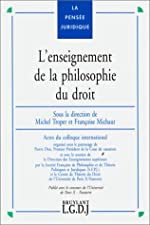
The Global Rise of a New Paradigm
Volume Editors: Badouin Dupret and Jean-Louis Halpérin
This volume formulates the hypothesis of a truly global revolution that reflected a Great Divide between ancient and new legal regimes. The volume brings together several case studies of transition from an ancient to a new legal regime characterized by the positivization of the law. This was an effect of Western imperialism, but also of local elites’ conviction that positive law was an efficient instrument of governance. The contributors emphasize the depth and scale of the positivist legal revolution and explore the phenomenon whether it was the outcome of either direct colonialism (Morocco, Egypt, India) or indigenous reformism (Ottoman empire, China, Japan).
Publié chez Brill|Nijhoff le 13 Décembre 2021
ISBN: 978-90-04-49871-6. Site de l’éditeur
Table of contents
Introduction
Baudouin Dupret
1 The Great Divide in Legal Discourse: Towards a Global Historical Ontology of the Concept of Positive Law
Baudouin Dupret and Gianluca Parolin
2 Historical Landmarks in Mapping the Spread of Positive Law Teaching
Jean-Louis Halpérin
3 Writing Customs: Three Episodes in the Process of Positivization of Berber Customary Law in Morocco
Léon Buskens
4 Ambiguities and Interdependencies: The Relationship between Legal Positivization and Islamic Law in Colonial India, 1765–1909
Jean-Philippe Dequen
5 The Positivization of Ottoman Law and the Question of Continuity
Avi Rubin
6 How Government Jurists and Lawyering Approached the “Positivizing” of the Law in China
Tzung-Mou Wu
7 The Meiji Era: When Japanese Law Became Positivized
Béatrice Jaluzot
Conclusion
Jean-Louis Halpérin
Index




